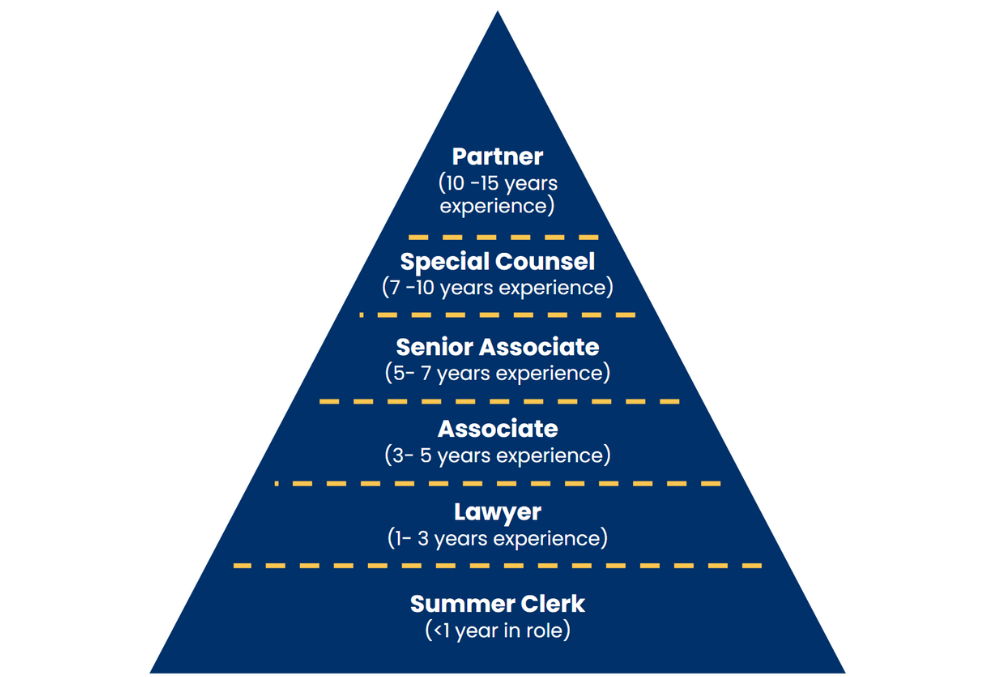Law Clerk
A law clerk is a legal professional who assists judges, attorneys, law firms, and other legal professionals by conducting research, preparing documents, and providing other legal support.
What Does a Law Clerk Do?
The primary responsibilities of a law clerk include:
- Conducting legal research on statutes, precedents, case law, and other sources to prepare memos summarizing complex legal issues
- Preparing briefs, motions, orders, opinions, and other legal documents under the supervision of a judge or attorney
- Reviewing case materials such as transcripts, evidence exhibits, and case files
- Assisting with document management, organization, and litigation support
- Attending trials, hearings, and meetings to take notes and provide assistance
- Proofreading legal documents and citations
- Providing administrative support such as managing calendars, correspondence, file management
Essentially, a law clerk serves as an assistant to judges, lawyers, law firms, government agencies, and corporations by handling important but often tedious legal tasks. This allows the supervising attorneys to focus their time on higher-value work.
What is the Role of a Law Clerk?
Law clerks play a crucial behind-the-scenes role in the legal system by supporting the work of lawyers, judges, law firms, and legal departments.
They are involved in nearly every aspect of legal work, including litigation, contracts, regulatory compliance, real estate, mergers and acquisitions, and more.

While most law clerks work under the close supervision of an attorney or judge, some may be given autonomy over certain matters like researching legal questions, drafting documents, or assisting with case strategy.
Experienced law clerks often serve in specialized roles such as:
- Judicial law clerks – Assist judges with appeals cases and drafting opinions
- Litigation support clerks – Manage documents and evidence for trials
- Corporate/real estate clerks – Prepare transactional documents
So in essence, law clerks allow the legal system and those working in it to operate more efficiently while gaining valuable experience themselves.
What Qualifications Do You Need to Be a judicial clerk?
The requirements to become a law clerk vary by employer, but generally include:

Educational Background
Most law clerk positions require a Juris Doctor (J.D.) from an accredited law school. Some may accept those still pursuing a J.D. or advanced law degree.
Subject matter expertise through a specialty law degree (e.g. tax law, intellectual property law) is preferred for some law clerk roles.
Legal Experience
Some prior legal experience such as summer associate positions, internships, or clinic work is extremely helpful to prepare law students for clerkship roles.
However, many judges hire law clerks directly out of law school to mentor new graduates, so prior experience is not always required.
Academic Performance
Strong academic credentials, graduation near the top of one’s law school class, and good writing skills are key qualifications law firms and judges look for.
Serving on the editorial board of a law review demonstrates research, writing, editing, and analytical abilities that translate well to law clerk roles.
Personal Attributes
Essential skills for succeeding as a law clerk also include:
- Attention to detail
- Time management
- Interpersonal skills
- Discretion/confidentiality
An ability to process large volumes of information accurately under tight deadlines is crucial.
What is the Career Trajectory and Salary for judicial clerk?

Career Trajectory
Working as a law clerk is considered extremely prestigious and opens up wide-ranging career opportunities including:
Private Practice
Law firm experience provides commercial awareness to advise clients on transactions and litigation.
Public Interest
Clerkship demonstrates a commitment to ethics and social justice.
Judiciary
Future judges benefit tremendously from seeing the inner workings of courts.
Politics
Clerking illustrates the analytical thinking key for public service roles.
Academia
Research, writing, and critical analysis skills prepare clerks to teach.
In addition to the hands-on legal experience, clerks gain mentorship and professional connections that boost their careers immensely.
Salary
According to the U.S. Bureau of Labor Statistics, the average annual salary for law clerks in the U.S. is $62,290. However, salaries vary widely:
- Entry-level law clerks often make around $45,000-65,000 per year.
- Experienced federal judicial clerks earn over $80,000 on average.
- Private firm clerks at large urban practices can make up to $215,000 per year.
- Corporate law departments pay experienced clerks median salaries exceeding $150,000.
So while clerkship salaries skew low initially, the opportunities down the road are expansive and lucrative for top performers.
Types of judicial clerk Positions
There are a few common types of law clerk positions:
Judicial Clerk
Judicial clerks, also called judicial assistants, work closely with judges, providing legal research and writing support for trials and appeals. Tasks include preparing bench memoranda on procedural and substantive issues before the court, drafting orders and opinions, communicating with litigants, and assisting during proceedings. State and federal judges utilize judicial clerks. Federal clerkships are considered the most competitive and prestigious.
Law Firm Clerk
Law firm clerks provide similar research, writing, and case support to lawyers within private practices. However, their work may span various practice groups from corporate transactions to litigation. Assignments can include drafting contracts, memos, and briefs, assisting with discovery and due diligence, and more. Law firm clerk positions are great stepping stones into private practice.
Government/Public Sector Clerk
Government agencies like the Department of Justice as well as district attorney and public defender offices recruit law clerks too. These public sector clerks conduct research projects, assist with trials, draft memoranda and briefs, review evidence and filings, and gain exposure to public policy. This experience can feed into careers ranging from politics to nonprofit work.
Frequently Asked Questions
Conclusion
A law clerk or judicial clerk is a legal professional who provides vital research, writing, analytical, and case support services to facilitate the work of lawyers, judges, government agencies, and legal departments. They play a critical behind-the-scenes role across every practice area. While compensation for entry-level law clerk positions is modest, the career trajectory, experience gained, and doors opened down the road are tremendous for those who perform well in these demanding roles. Law clerks get exposure few others receive to the inner workings of the judicial system and legal profession while building up their expertise and networks.
Citations:
[1] https://www.merriam-webster.com/dictionary/law%20clerk
[2] https://en.wikipedia.org/wiki/Law_clerk
[3] https://oscar.uscourts.gov/duties_of_federal_law_clerks




